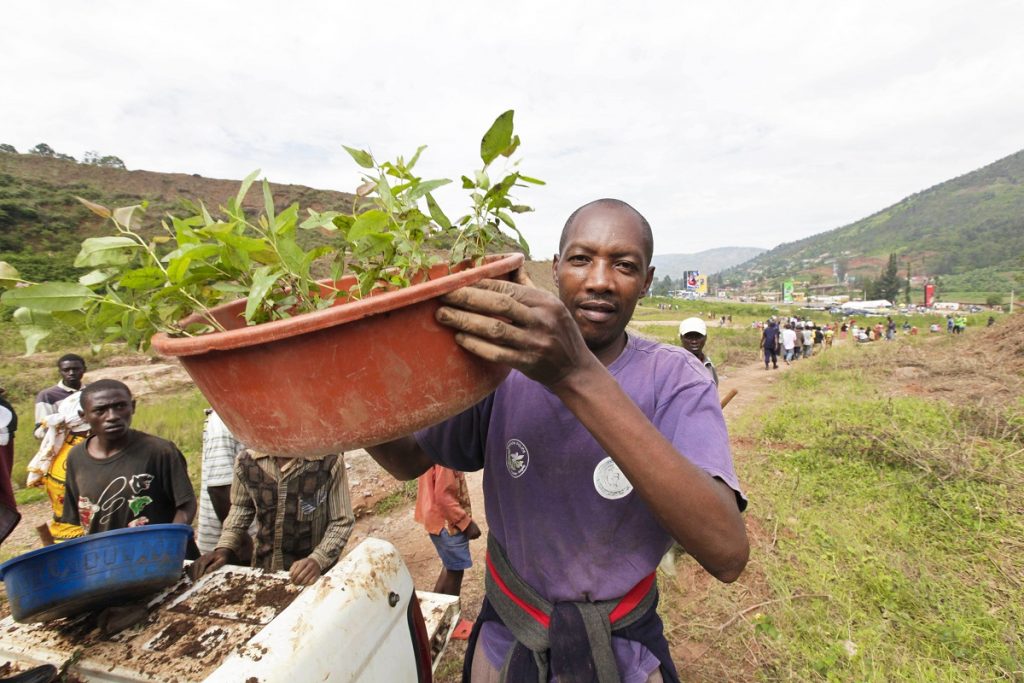The usually bustling Kigali streets are remarkably empty this Saturday morning, but it’s not quiet.
It’s the last Saturday of the month – community work day. On my way to join some of my colleagues and take part, I walked past public parks where people were weeding and taking care of downed trees, while others cleaned the sidewalks and streets.
Laughter, joking, instructions being shouted from one to another filled the air. It seems like everyone was out and about, busy, hot and sweaty, and it was only 7:00 AM! My friends told me that we were starting early today so that we could feel free to break early too. No one wants to miss the Rwanda-DRC soccer match – hosted here in Kigali!
Can you imagine an entire country committing a day a month to community service?
Of course, there are a few that cannot participate in a given month. There were a few people that still had to work at my hotel, and one Rwandan colleague confessed that this month he planned to sleep in! However, almost everyone I spoke to had plans to take part in a neighborhood clean-up or return to their village to fix schools or hospitals or build and repair homes of the poorest people in their community.
It is possible that some, if not the majority, of Americans over the course of their lifetime will do what works out to be about an average of a day a month of community service a year. We are a country with a strong spirit of volunteerism.
But there is something powerful about everything stopping in a country so people can build up their community. Perhaps what makes it so impressive is how much can be accomplished when a group prioritizes a single task. It evokes that iconic American image of “barn raising” which is now practically only found in the Amish communities.
I have dedicated my whole career to defending human rights and fighting poverty. I’ve had periods of time where I worked at the local level in direct service, time spent working internationally at local or national levels, and now most of my energy is at the global level – building out systemic change.
But there is something soul cleansing about the dirty, dusty, sweaty, muscle-aching process of joining your hands with those of your neighbors in an effort to build a stronger community.
Before I go to wash up and catch the match…
Imagine if we all decided to take up the Rwandan example and commit 12 days a year to restore community.
What would it look like in your community? Nobel Peace Prize laureate Wangari Maathai is rumored to have said something like,
“Planting trees was my little thing. What is your little thing?”
This sparked a Kenyan-wide campaign #MyLittleThing.
What is your little thing?

